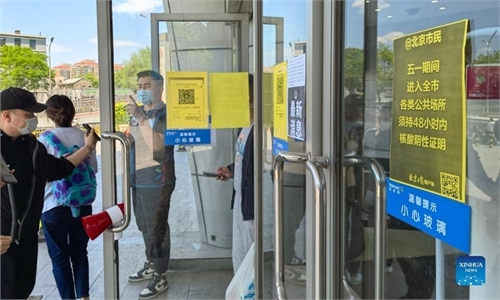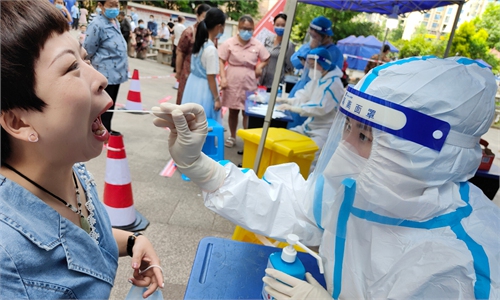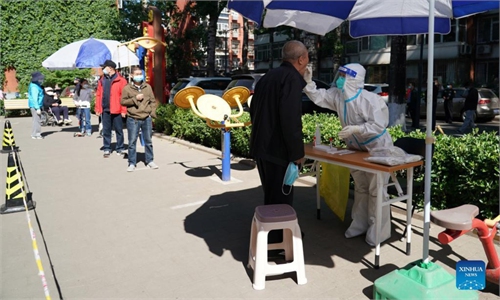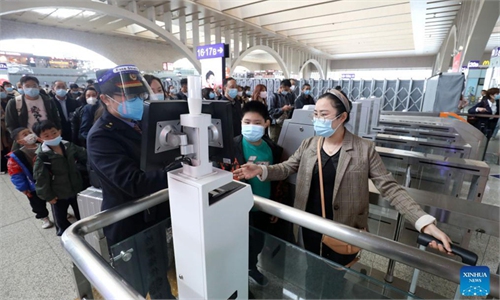Nucleic acid testing should not be a 'new normal' in non-epidemic regions: top health authority
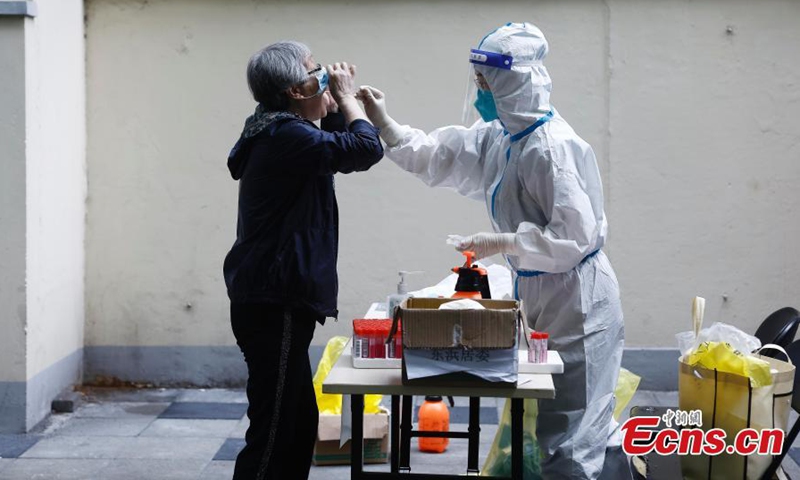
A woman undergoes a nucleic acid test at a temporary testing site in east China's Shanghai, May 11, 2022. (Photo: China News Service/Yin Liqin).
Cities and regions should avoid instituting mass nucleic acid testing blindly and getting tests should not be a "new normal" in non-epidemic regions in China, the National Health Commission (NHC) said on Thursday, dismissing arbitrary expansion of testing scope in all circumstances.
Nucleic acid testing is still the most scientific and effective method to detect COVID-19, but it is unnecessary for people in low-risk and from low-risk regions such as those who always tend to stay at home to be tested frequently, He Qinghua, an official from the NHC, said at Thursday's press conference.
For local anti-epidemic policies, He said "where there is no epidemic or imported risk, nucleic acid testing should not become a normal practice."
Media reports said nucleic acid testing was taken as mandatory travel permit in many circumstances. In some cities with outbreaks there are different requirements for nucleic acid negative certificates in different time periods and places.
He explained that the testing should focus on population of high-risk or who work at high-risk posts or from epidemic-hit regions. When there is an epidemic, local government should stipulate a testing strategy based on epidemic requirement on a scientific basis and specify the scope and frequency of the testing.
Expanding the testing scope blindly should be avoided and testing should be rolled out in accordance with people's differentiated risks, He stressed.
People who are subject to testing or its frequency for receiving nucleic acid tests must be arranged according to the needs of epidemic prevention and control. In principle, the sealed-off areas should finish the first round of testing within 24 hours, and the controlled areas within 48 hours.
The NHC also noted to avoid a one-size-fit-all approach in establishing a 15-minute circle of testing services in all cities. Such services only need to be established in port cities, capital cities and cities with millions of residents. It aims to boost virus detection capability and find potential risks earlier.
Global Times
